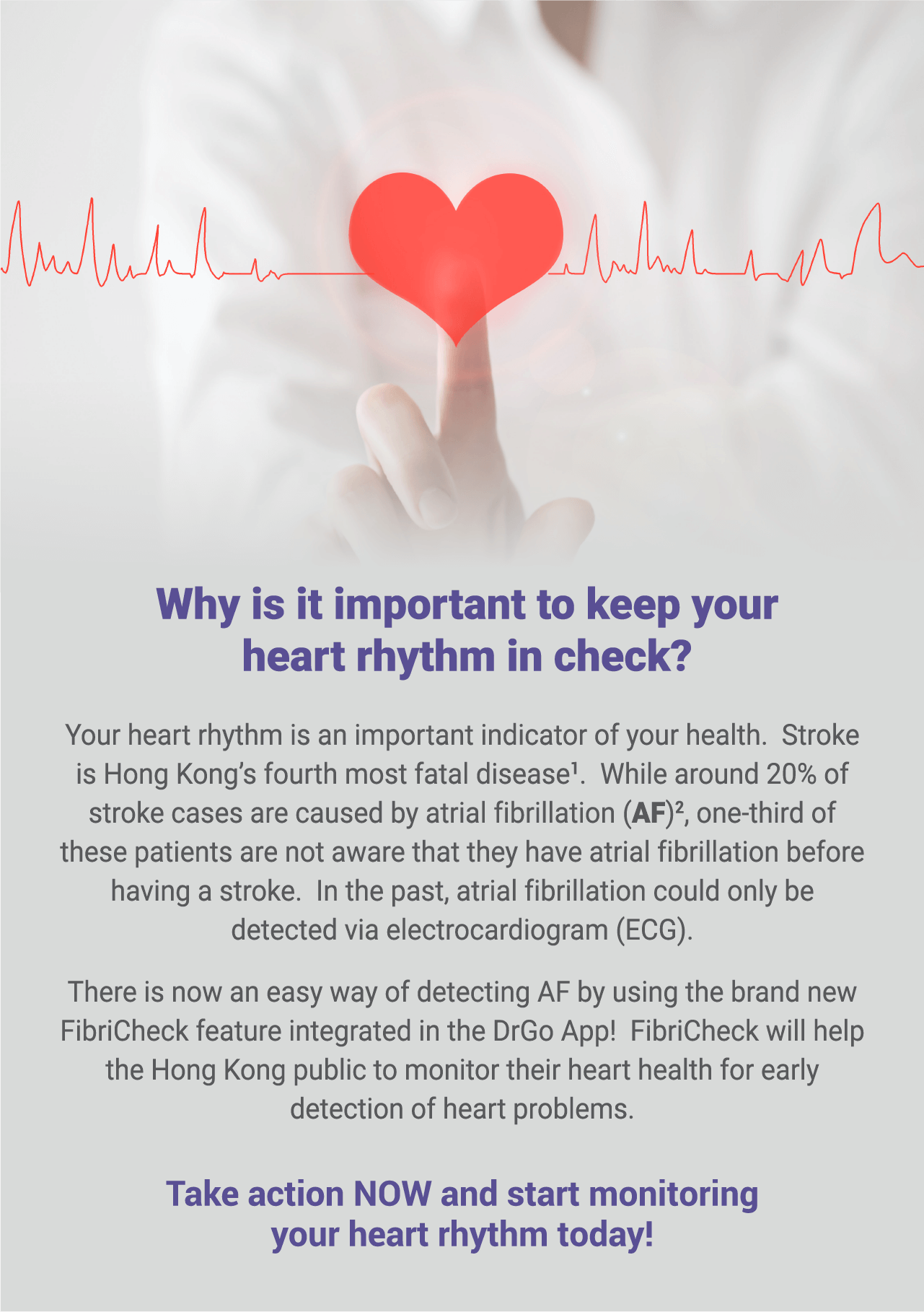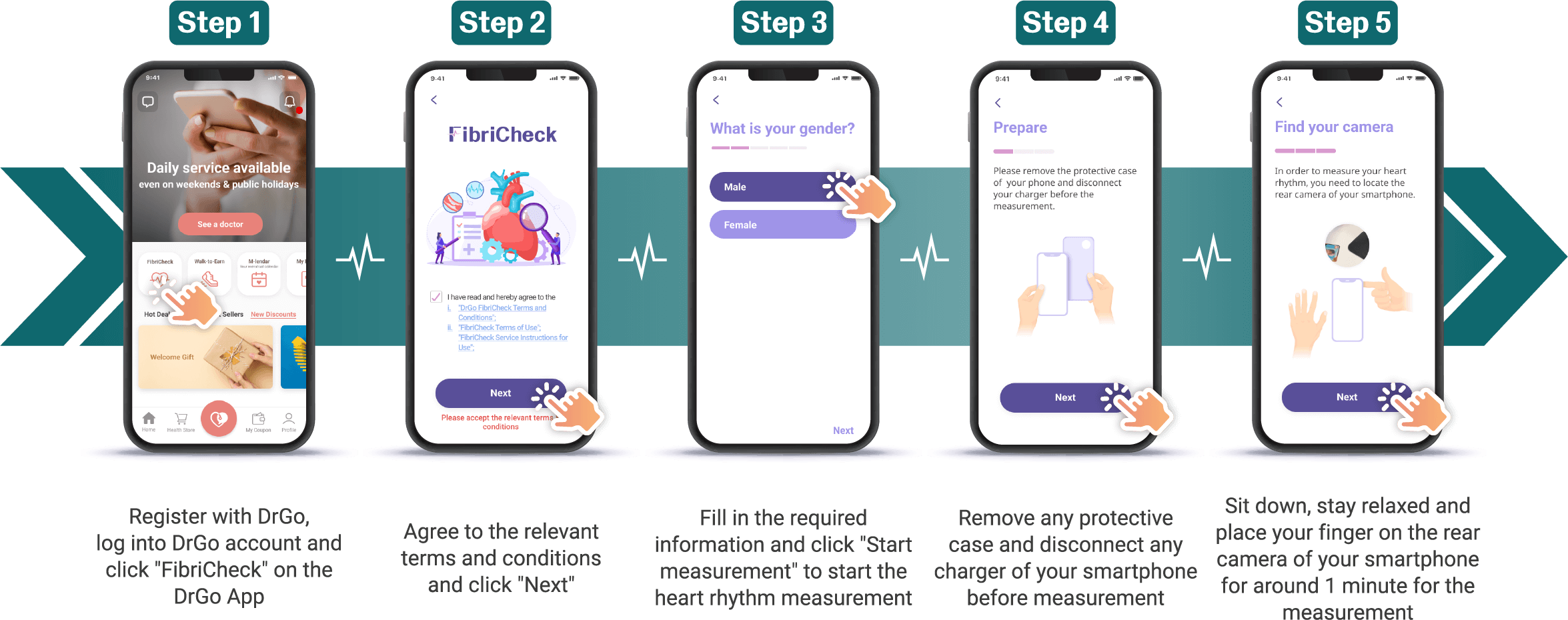








Notes:
1 Hospital Authority https://www21.ha.org.hk/smartpatient/SPW/en-us/Disease-Information/Disease/?guid=29ac1219-3d68-4378-a2bd-09e111da3650.
2 Soo Y, et al. J Neurol Neurosurg Psychiatry. 2017 Sep;88(9):744-748.
3 Proesmans T, et al. JMIR Mhealth Uhealth. 2019 Mar 27;7(3):e12284.
Terms and Conditions details of the Programme:
· Click here to learn more "DrGo FibriCheck Terms and Conditions"
· Click here to learn more "FibriCheck Terms of Use" & "FibriCheck Service Instructions for Use"